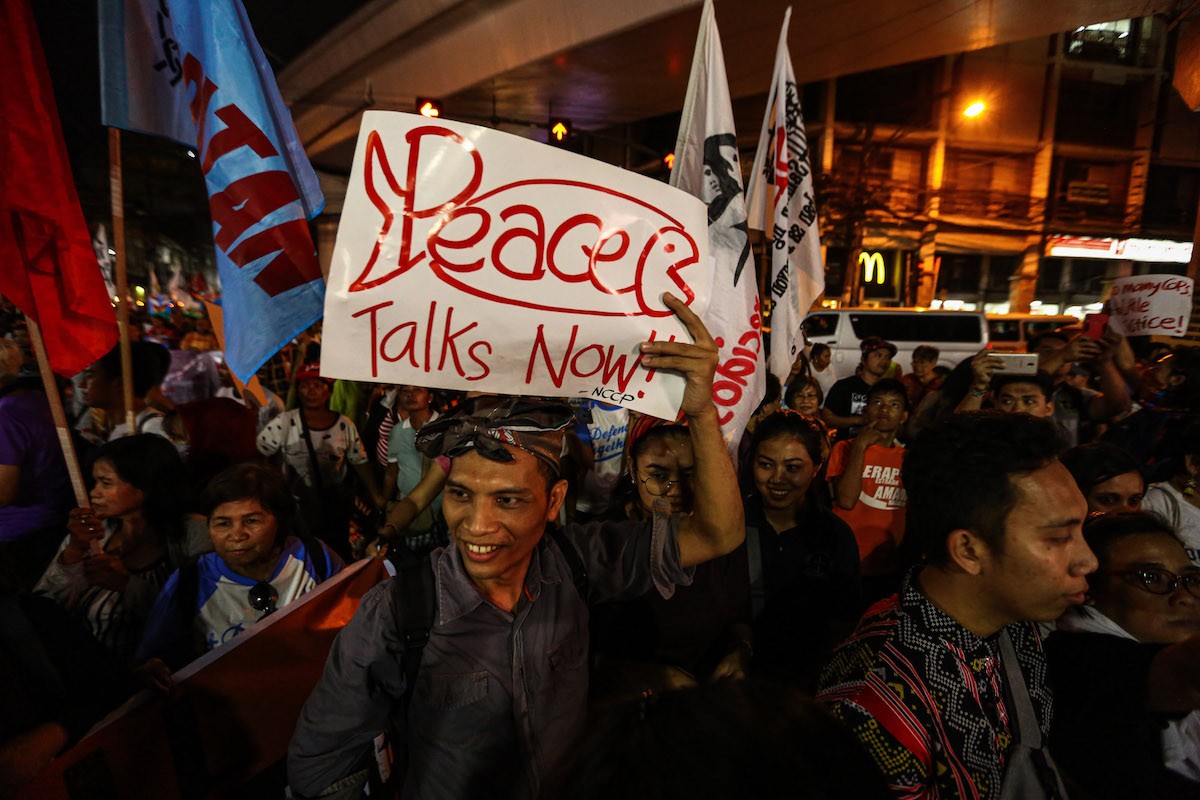Catholic and Protestant church groups in the Philippines called on President Ferdinand Marcos Jr. to revive peace negotiations with the communist underground movement.
The call was made on Thursday, September 1, on the 30th anniversary of The Hague Joint Declaration, which framed the government’s peace negotiations with the communists.
The Hague Joint Declaration is a framework agreement that set the agenda for peace negotiations between the Philippine government and the National Democratic Front in the Philippines.
In its statement, the Philippine Ecumenical Peace Platform (PEPP) urged Marcos “to reconsider the administration’s approach to peace,” saying that “his predecessors’ all-out-war policy failed to resolve the decades-old armed conflict.”
“Every administration, including that of your father, intensified its respective counter-insurgency program aimed at defeating the communist rebellion,” said the group in its message to the president.
“Despite the massive campaigns implemented by these administrations to end this armed conflict, it has continued to rage particularly in the countryside causing internal displacement in the most vulnerable communities,” it added.
PEPP noted that the “long running conflict only mirrors how deeply embedded are its roots in social injustice.”
“Can there be peace without justice and meaningful change in the lives of the majority of our people who continue to wallow in poverty and misery?” said the group.
PEPP is a network of church leaders officially designated by four religious federations — the Catholic Bishops’ Conference of the Philippines, National Council of Churches in the Philippines (NCCP), Philippine Council of Evangelical Churches, Conference of Major Superiors of the Philippines, and the Ecumenical Bishops Forum.
They called on Marcos “to reconstitute the [government] peace panel and resume the … peace negotiations, respecting the work and upholding the agreements that have been entered into by past leaderships.”
In a separate statement, the NCCP welcomed the call made by Senate President Pro Tempore, Loren Legarda, to resume the peace negotiations.
Bishop Reuel Norman Marigza, NCCP general secretary, said Legarda’s call “is a breath of fresh air amid the toxic atmosphere brought about by speeches and public discourses that sow hate and war.”
“The NCCP has always championed principled dialogue over the negotiating table to resolve the 50-year-old armed conflict in the country,” said the Protestant bishop.
Legarda raised the call after Sen. Francis Tolentino, in a privilege speech in the Senate, floated the idea of requiring government officials to declare in their Statement of Assets, Liabilities, and Net Worth who among their family members are members of or affiliated with “terrorist organizations.”
The NCCP said the proposal of Tolentino is “dangerous and unjust” because it requires public officials to adjudge their relatives as “subversive” or “terrorist” without due process “on the basis of mere guilt by association.”
In its statement, the PEPP cited a Pulse Asia Survey conducted from June 24 to 27, 2022, that indicated that promoting peace is number eight in the top 10 most urgent issues that Filipinos want the Marcos Jr. administration to prioritize.
“Advocating for formal peace talks at the national level as the roots of the armed conflict in the country demand a comprehensive and systemic response,” read the PEPP statement.
The religious group said peace negotiations hold “the potential to mitigate the human rights violations and the loss of lives consequent to this armed conflict.”
